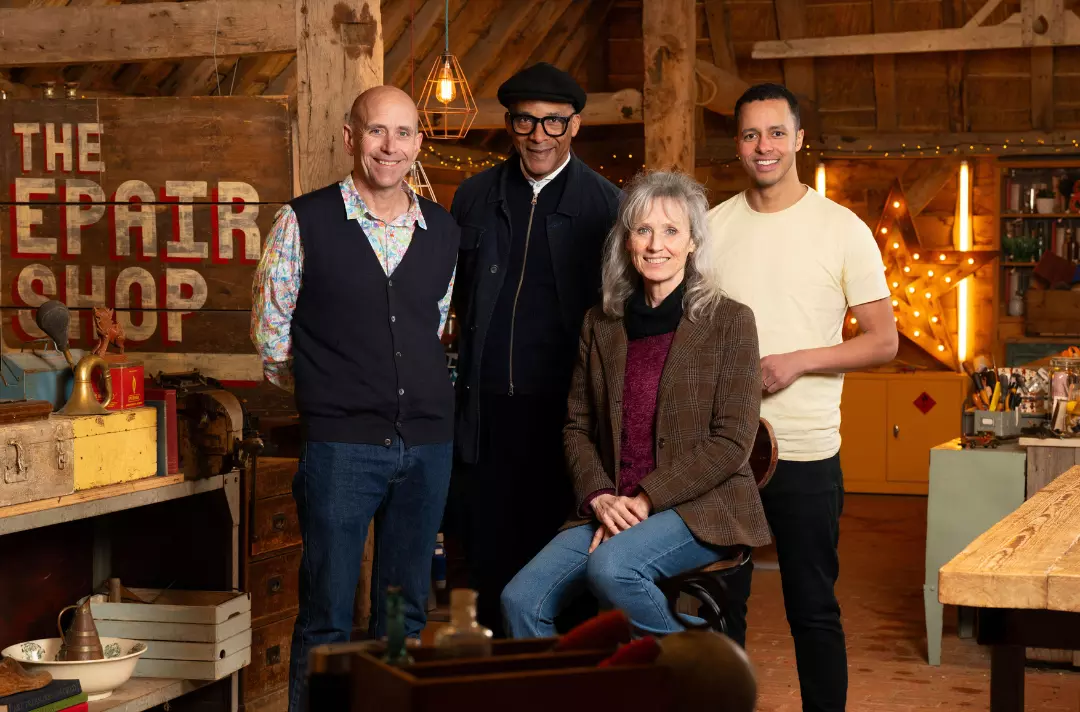11 May 2024
Made whole: Healing through re-member-ing
Ron Thomlinson

As The Repair Shop continues on BBC One, Ron Thomlinson considers the power of memories.
On Wednesday evening, millions of people will tune in to BBC One to watch the next episode of The Repair Shop. Presented by Jay Blades, the show takes viewers into a workshop filled with expert craftspeople, where loved pieces of family history are taken apart, examined, cleaned and put back together again. The programme demonstrates the power of memories. Perhaps some of our memories and experiences need to be lovingly restored through the process known as re-member-ing.
What has surprised me most about ageing is the extent to which memories and my image of God have taken over my thinking. Memories and how we deal with them can define us. They help form our response to present-day relationships and our spiritual life. However, taking a stroll down memory lane is not always pleasant. Our memories are as varied as the adjectives to describe them: cherished, shameful, happy, toe-curling, beautiful, debilitating. We can have memories of feeling God-forsaken or overwhelmed by a sense of God’s presence.
Albert Orsborn prayed: ‘Call into thy fold of peace/ Thoughts that seek forbidden ways’ (SASB 325). Our memories can take us down ‘forbidden ways’, disturbing our everyday life and our present experience of God. Herbert Booth wrote: ‘All the memories of deeds gone by/ Rise within me and thy power defy’ (SASB 474).
This is why our memories need re-member-ing. To be healed, we need to bring our painful memories out of the shadows. ‘I failed badly’ can be re-member-ed as ‘I was courageous coming through that situation’. Such re-member-ing can save us from spiritual imprisonment.
Speaking to a wise friend may be sufficient to come to terms with some memories. Traumatic, tragic, destructive remembrances may need the skill of a counsellor or even legal justice. We may never rid ourselves of a particular hurt, but our memories can be approached with understanding, grace, salvation and forgiveness – we must remember to forgive ourselves and others for not being God.
Commenting on 2 Peter 1, Steven Croft, the Bishop of Oxford, wrote: ‘The author … knows that very little time is left to him. Death is not far away now. He uses what may be his final letter to the Church for reminding and re-member-ing. To re-member is, literally, to put things back together again: to reassemble the big picture of our faith, to re-orientate our lives again with God’s love and grace and God’s call at the centre.’
Remembrance is at the heart of our personal and corporate faith. It determines our approach to our God as an individual and as a group. If you, like me, are in your older years, why not try re-member-ing your own salvation history? It could be surprising.
Start by recalling where your first picture of God came from – who gave it to you, where, and in which circumstances. What senses were used in creating that image? Music, icons, family life, church or Army traditions? How were you taught to approach God?
Once you have taken it apart, examined and cleaned it, put it back together again. What has happened to you since? Who is God for you now? Do you now approach God differently from when you first began?
There is more to old age than just the excitement of waiting to collect the next repeat prescription. By re-member-ing, we can still practise all we have preached. We can be both use and ornament – healed and restored.
Reflect and respond
Consider this quote from Henri Nouwen: ‘Our prayer can only become unceasing when all our thoughts – beautiful or ugly, high or low, proud or shameful, sorrowful or joyful – can be thought in the presence of the One who dwells in us and surrounds us... The main question, therefore, is not so much what we think, but to whom we present our thoughts.’
Written by

Ron Thomlinson
The Netherlands











